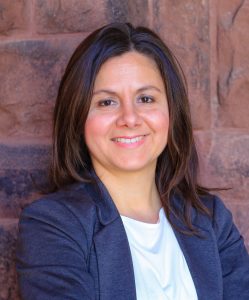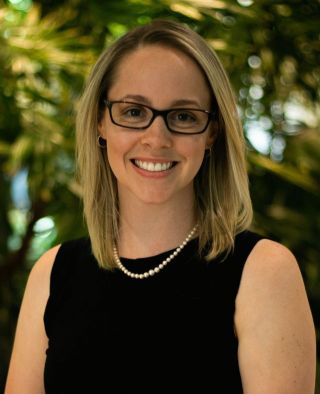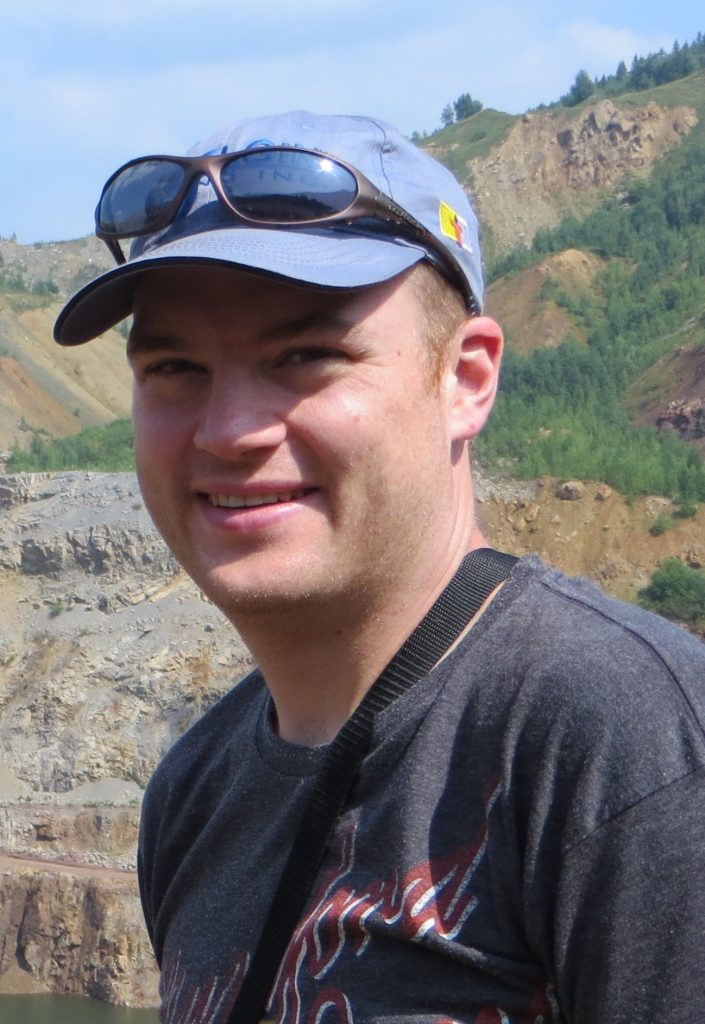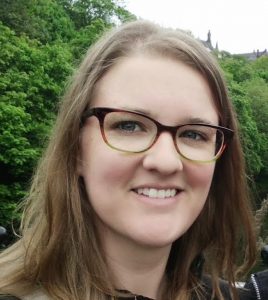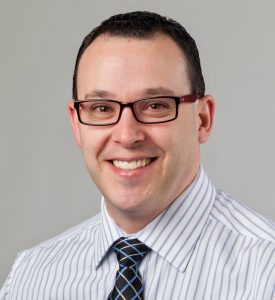From: Cheryl Regehr, Vice-President & Provost
Mark Schmuckler, Acting Vice-Provost, Innovations in Undergraduate Education
Date: March 25, 2020
Re: 2020-21 Recipients of the Early Career Teaching Award and Teaching Fellowship (PDAD&C #57)
We are delighted to announce the recipients of the 2020-21 University of Toronto Early Career Teaching Award and University of Toronto Teaching Fellowship. In addition to congratulating this year’s recipients, we would like to thank the nominators for their work in preparing submissions. We would also like to thank the members of the selection committee for their dedication to recognizing excellence in teaching at the University of Toronto.
University of Toronto Teaching Fellowship: 2020-21
The University of Toronto Teaching Fellowship provide funds for faculty members in the teaching stream focused on supporting pedagogical innovation and research. This Fellowship is a pathway for promoting emerging leaders across the University. The Fellowship is an opportunity for faculty members to undertake a two-year teaching and learning project centered on either curriculum review or renewal, or course redesign/development, working closely with the Office of the Vice-Provost, Innovations in Undergraduate Education and the Centre for Teaching Support & Innovation (CTSI).
Paola Salardi
Assistant Professor, Teaching Stream
Director, Trudeau Centre for Peace, Conflict, & Justice
Munk School of Global Affairs & Public Policy
Faculty of Arts & Science
Professor Paola Salardi is an Assistant Professor, Teaching Stream, and the Director of the Trudeau Centre for Peace, Conflict and Justice at the Munk School of Global Affairs & Public Policy at the University of Toronto. Her background is as an applied economist with a focus on economics of conflict, economic development, inequality and political economy. Before joining the University of Toronto in 2014, Professor Salardi received a PhD in Economics from the University of Sussex and worked at the Inter-American Development Bank and as a consultant with the Institute of Development Studies (IDS) in the UK and with UN WOMEN. Professor Salardi is a Faculty Mentor for the Reach Alliance program and a Senior Fellow at Massey College.
Professor Salardi has taught a variety of undergraduate and graduate courses in applied economics and statistics. Her core focus pedagogically in her work at the Munk School has been on developing innovative approaches to teaching economics and data analysis to non-economists. Professor Salardi’s research background bridges the fields of the Economics of Conflict, and the Economics of Inequality and Discrimination. Her research has focused on the legacy of conflict on welfare, the changing role of women in post-conflict countries, the role of institutions in shaping the presence of violence and on inequality and women’s empowerment. This has included a broad geographic focus, including work on inequality and discrimination in Brazil, violence and school performance in Mexico, violence, education and women’s empowerment in Timor Leste, and humanitarian responses to crises in Kenya, Nepal and the Philippines. Her research has been published in the Journal of Development Economics, World Bank Economic Review, World Development, among others.
University of Toronto Early Career Teaching Award
This award recognizes faculty members who demonstrate an exceptional commitment to student learning, pedagogical engagement and teaching innovation. Up to four awards of $3,000 are offered annually.
Danielle Bentley
Assistant Professor, Teaching Stream
Division of Anatomy, Department of Surgery
Faculty of Medicine
Professor Danielle Bentley joined the Faculty of Medicine’s Division of Anatomy in 2017 (with both a general appointment (restricted-teaching) in the Institute of Medical Science and a cross-appointment in the Department of Laboratory Medicine and Pathobiology). She primarily teaches Embryology and Gross Anatomy to a wide array of student populations, including undergraduate, graduate, allied health, and medical students from the Faculty of Arts & Science, Institute of Medical Science, Department of Radiation Sciences, Department of Laboratory Medicine and Pathobiology, and the MD Program. With courses that are uniquely designed to meet the vocational expectations of each student cohort, her overarching goal as a professor is to enable her students to apply foundational anatomical knowledge to real-life scenarios. As such, her classrooms, whether they be the dissection lab or the virtual learning platform, are dynamic and engaging with embedded clinical applications used to demonstrate the relevance of anatomy as an essential building block to the study of the human body.
As an educational researcher and scholar, Professor Bentley’s program of research is dedicated to authentic student learning within the anatomical sciences through evidenced-based practices and meaningful assessments. Her research has received institutional (a University of Toronto Learning & Education Advancement Fund Grant) and International (American Association for Anatomy) recognition and funding, and her work is broadly disseminated at national and international conferences as well as through peer-reviewed publications. Professor Bentley invites undergraduate students to actively engage in this scholarly work, guiding them as they develop their own research identities. Outside of the classroom, Professor Bentley is committed to her own professional development, exemplified by her recent participation in the University’s Scholarship of Teaching and Learning Cohort as well as her recent completion UHN’s Stepping Stones Program. She also supports the teaching practices and education research endeavours of her colleagues both locally (via one-on-one research design consultations) and internationally (demonstrated by her co-planning of the international Anatomy Education Research “UNconference” event to enhance research design).
Daniel Gregory
Assistant Professor
Department of Earth Sciences
Faculty of Arts & Science
Daniel Gregory joined the Department of Earth Sciences at the St George campus in 2018. He specializes in economic geology and geochemistry, and his research applications extend to deciphering chemistry of ancient oceans and identifying controls on gold mineralization in sediment-hosted ore deposits. He uses micro- to nano-scale techniques to analyse trace element concentration and isotopic variation in minerals to interpret the environmental changes at the time of formation. His style of teaching emphasizes bridging the gap between academic research and industry advancements.
Professor Gregory uses a variety of teaching approaches to drive student-learning and to spark curiosity over course objectives. For example, he incorporates the use of a portable XRF, a common tool in the mining industry, to teach how hydrothermal fluids change rock chemistry through blind target exercises. He offers opportunities for his students to teach what they have learned through flipped classroom techniques and imperfect rock samples to identify gaps in learning and reasoning key concepts. Industry-level competitions, such as open data challenges, are often included in the course curriculum to encourage students to think beyond classroom applications. A major milestone achieved this past year is the development of an online field course which allowed students to complete a simulated field-based mapping excursion. While there are many upsides to in-person field-based learning, the online course offered new teaching angles and challenged students to think in the big data space and to assess the quality of field data in unknown terrains.
Jacqueline Smith
Assistant Professor, Teaching Stream
Department of Computer Science
Faculty of Arts & Science
Professor Jacqueline Smith joined the Department of Computer Science in 2015. Her teaching philosophy centres around her belief that human connection is at the core of successful teaching and learning. She is committed to making Computer Science available and welcoming to all interested students. Her classroom teaching is typically in large introductory Computer Science courses, and she is especially interested in the experience of students who have had no prior exposure to the discipline. Her efforts to improve the student experience in introductory Computer Science courses include implementing active learning at scale, piloting a mastery-based course, and designing and delivering training to support teaching assistants as they learn to teach. Outside of her classroom teaching, she created Second-Year Learning Communities to support students newly admitted to a Computer Science program. She additionally made significant contributions to improving the process for admission to Computer Science at the University of Toronto.
Professor Smith also works with other teachers, from new teaching assistants to experienced faculty, providing pedagogical support for their courses, and helping them implement best practices in inclusive teaching. She provided guidance to instructors in her department as they moved courses online in 2020, supporting both instructor and student wellbeing. She is engaged in the Computer Science Education research community and presents her work regularly at Canadian and international conferences.
Olivier St-Cyr
Assistant Professor, Teaching Stream
Faculty of Information
Since joining the Faculty of Information in 2016, Professor Olivier St-Cyr has undertaken several initiatives to enhance and support student learning. He created the UXD Concentration curriculum in the Master of Information (MI) professional degree. Using a consultative approach rooted in iterative design, Professor St-Cyr built a curriculum that bridges UXD theory and practice and is informed by industry approaches. Industry-informed teaching has always been a central part of Professor St-Cyr’s pedagogy. Having spent eight years in industry before transitioning to academia, Professor St-Cyr has developed innovative practices that bring industry relevance to student learning. To support his teaching, Professor St-Cyr designed and oversaw the construction of two cutting-edge active learning spaces in the Bissell Building (which houses the Faculty of Information). The spaces are Professor St-Cyr’s teaching research labs, acting as exploratory sandboxes. These spaces have transformed teaching and learning at the Faculty of Information.
Professor St-Cyr is committed to student learning and pedagogical engagement through his innovative classroom practices which emphasize hands-on active learning, project-based learning, and studio-based pedagogy. In his UXD capstone course, he has adopted a Community-Engaged Learning (CEL) framework in which students partner with grassroots community organizations across the Greater Toronto Area (GTA) to complete a major design project. Professor St-Cyr serves on a number of university-wide teaching advisory committees, is a member of the Education Advisory Committee of the Association for Computing Machinery (ACM), and the co-founder of EduCHI, an international community of practice of Human-Computer Interaction (HCI) and UXD educators. He was the 2016/17 recipient of the Faculty of Information Master of Information Student Council (MISC) Outstanding Instructor Award.
